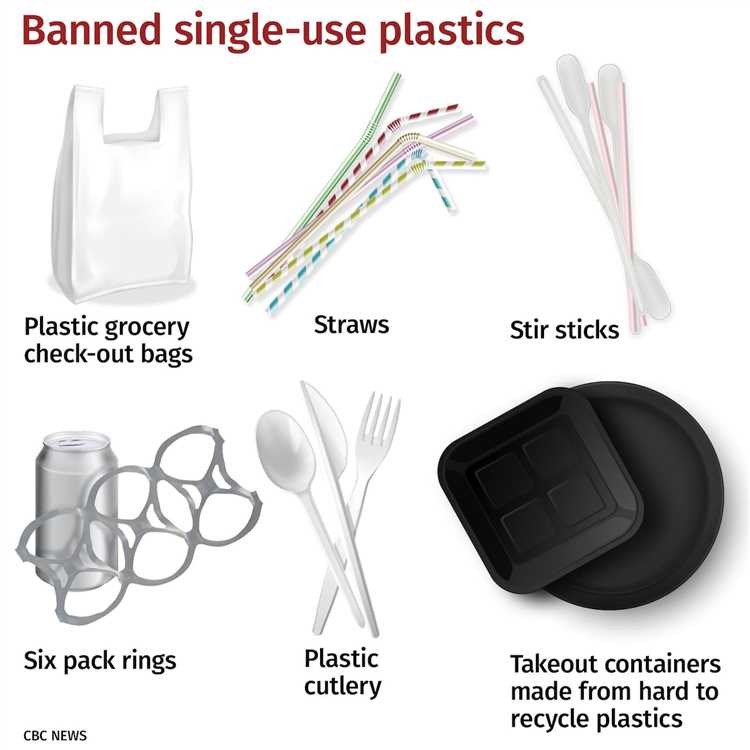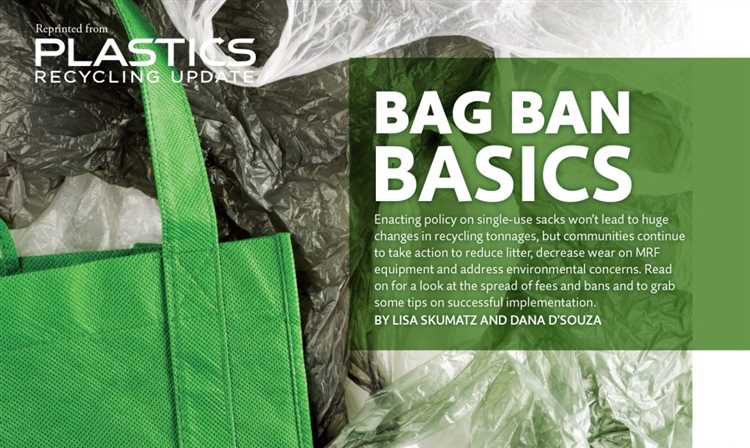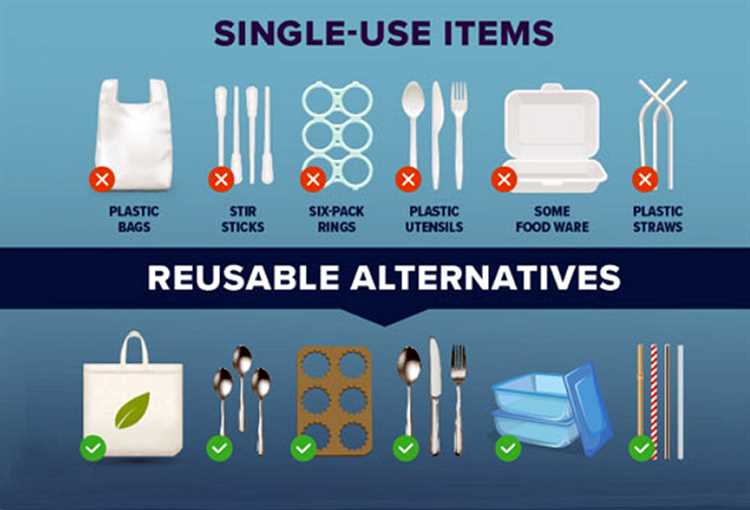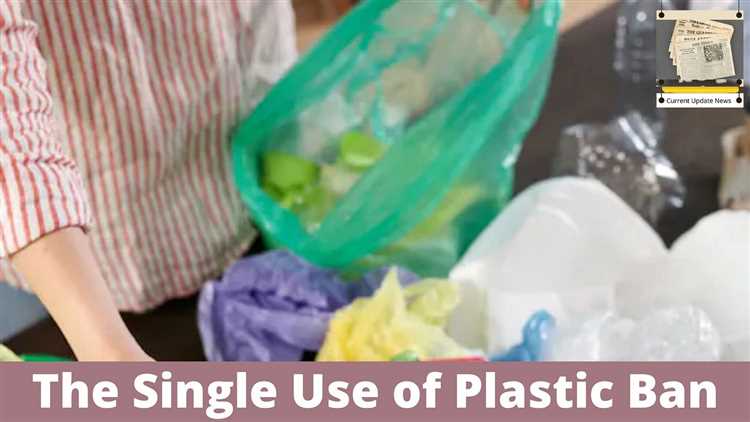
In recent years, global concerns about the environmental impact of plastic waste have led to a series of bans and restrictions on plastic products around the world. Governments and organizations are taking action to address the issue and promote sustainable alternatives. With the rapid pace of change, it can be difficult to keep up with the latest updates on the plastic ban. In this article, we provide you with the essential information you need to know about the latest developments in the plastic ban.
Plastic pollution is a pressing global issue that poses significant threats to our ecosystems and biodiversity. From marine life entanglement to microplastic contamination in our food chain, the detrimental effects of plastic waste have become increasingly apparent. As a result, many countries have implemented or are in the process of implementing regulations to reduce plastic usage.
One of the key updates in the plastic ban is the expansion of the products covered under the restrictions. Initially, the focus was on single-use plastic items like bags and straws. However, governments are now targeting a wider range of products, including plastic packaging, disposable cutlery, and take-out containers. These measures aim to encourage the use of more sustainable alternatives and promote the circular economy.
The importance of individual action cannot be understated in this context. While governments play a crucial role in implementing regulations, individuals also have the power to make a difference. Simple changes like carrying reusable bags, opting for stainless steel or glass containers, and avoiding single-use plastics can significantly reduce our plastic footprint. By staying informed about the latest updates on the plastic ban, we can all contribute to a cleaner and more sustainable future.
- Global Shift Towards Sustainable Practices
- Government Legislation
- Corporate Initiatives
- Stricter Regulations and Bans on Single-Use Plastics
- Innovative Alternatives to Plastic Packaging
- 1. Bioplastics
- 2. Compostable Packaging
- Plastic Recycling and Waste Management Solutions
- 1. Recycling
- 2. Waste Reduction
- Impact of the Plastic Ban on Businesses and Consumers
- Retail and Hospitality Industry
- Consumer Behavior
- Challenges Faced by Small Businesses
- Promoting Awareness and Individual Responsibility
- The Role of Education
- Individual Responsibility
- Question-answer
- What is the plastic ban?
- Why is there a need for a plastic ban?
- What are some countries that have implemented a plastic ban?
- What are some alternatives to plastic?
- What are the benefits of implementing a plastic ban?
- What is the latest update on the plastic ban?
Global Shift Towards Sustainable Practices

In recent years, there has been a growing global awareness of the negative impact of plastic on the environment. This has led to a global shift towards sustainable practices aimed at reducing and eventually eliminating the use of plastic.
Government Legislation
Many governments around the world have implemented legislation to ban or restrict the use of single-use plastic items such as bags, straws, and cutlery. These measures are intended to encourage the use of more sustainable alternatives and reduce plastic waste.
Corporate Initiatives
Corporations have also taken steps towards sustainability by adopting more eco-friendly packaging solutions and reducing their plastic footprint. Many companies have set targets to use only recyclable or compostable materials in their products, and some have even pledged to become plastic-free in the near future.
Additionally, some companies are investing in research and development of sustainable packaging alternatives, such as biodegradable plastics made from plant-based materials.
These corporate initiatives are not only driven by a sense of environmental responsibility but also by consumer demand for sustainable products. More and more consumers are actively choosing brands that prioritize sustainability and reduce their plastic consumption.
Moreover, businesses are realizing that adopting sustainable practices can actually benefit their bottom line. By reducing plastic usage, companies can save costs on packaging materials and waste disposal, while also attracting environmentally conscious consumers.
The global shift towards sustainable practices is not limited to governments and corporations. Individuals are also making changes in their everyday lives to reduce their plastic usage. From using reusable bags and water bottles to composting and recycling, people are actively participating in the plastic-free movement.
Collectively, these efforts towards sustainability are crucial in mitigating the environmental damage caused by plastic pollution. It is encouraging to see the global community coming together and taking action to create a more sustainable future for our planet.
Stricter Regulations and Bans on Single-Use Plastics
The global movement to reduce plastic waste and pollution has led to a wave of stricter regulations and bans on single-use plastics. Governments and organizations around the world are recognizing the urgent need to tackle the issue and are taking action to restrict the production, sale, and use of these harmful materials.
Single-use plastics, such as plastic bags, straws, and cutlery, have become a major environmental concern due to their long lifespan and non-biodegradable nature. These items often end up in landfills, waterways, and oceans, where they can harm wildlife and ecosystems.
In response to this threat, many countries have implemented bans on certain single-use plastics. For example, some jurisdictions have prohibited the use of plastic bags in grocery stores, while others have banned plastic straws and stirrers in restaurants and bars.
Furthermore, stricter regulations are being enacted to limit the production and sale of single-use plastics. In some cases, manufacturers are required to use alternative materials or provide more sustainable options. This includes the development of biodegradable or compostable alternatives to traditional plastic products.
The European Union has been at the forefront of this movement, implementing a comprehensive ban on single-use plastics. The ban covers a wide range of items, including cotton bud sticks, cutlery, plates, and beverage stirrers. The EU is also working towards reducing the use of plastic food containers and cups, along with stricter labeling requirements.
Other regions, such as California in the United States, have followed suit with their own bans on single-use plastics. These regulations aim to reduce plastic waste and promote the use of reusable or recyclable materials.
Stricter regulations and bans on single-use plastics are a crucial step in addressing the plastic pollution crisis. By limiting the production and use of these items, we can reduce the amount of plastic waste entering our environment and protect our planet for future generations.
It is important for individuals to support these initiatives by reducing their own consumption of single-use plastics and advocating for change in their communities. Together, we can make a significant impact in the fight against plastic pollution.
Innovative Alternatives to Plastic Packaging
As the ban on plastic packaging continues to gain momentum, innovative alternatives are emerging to meet the demand for sustainable packaging solutions. These alternatives aim to reduce the environmental impact of packaging by using materials that are biodegradable, compostable, or recyclable.
1. Bioplastics
Bioplastics are a promising alternative to traditional plastics. These are derived from renewable sources such as corn, sugarcane, or cellulose, and they can be biodegradable, compostable, or both. Bioplastics have similar properties to conventional plastics, making them suitable for a wide range of packaging applications.
2. Compostable Packaging
Compostable packaging is designed to break down into organic matter in a composting environment. It is made from materials such as starch, cellulose, or natural fibers, which can be composted along with food scraps and other organic waste. Compostable packaging offers a sustainable solution for food packaging and other single-use items.
These innovative alternatives to plastic packaging show great potential for reducing the environmental impact of packaging waste. By choosing sustainable packaging solutions, we can contribute to reducing plastic pollution and creating a more circular economy.
Plastic Recycling and Waste Management Solutions

The issue of plastic waste has become a major concern worldwide due to its negative impact on the environment. To address this problem, various plastic recycling and waste management solutions have been developed.
1. Recycling
Recycling plays a crucial role in reducing plastic waste. Plastic bottles, containers, and packaging can be recycled and turned into new products. The recycling process involves collecting, sorting, cleaning, and melting plastic waste, which is then transformed into raw materials for manufacturing purposes.
It is important for consumers to separate their plastic waste and dispose of it in recycling bins. Many cities and communities have implemented recycling programs to encourage proper waste management. By recycling plastic, we can conserve resources and decrease the amount of plastic ending up in landfills or oceans.
2. Waste Reduction

Another solution to plastic waste management is reducing its consumption. This can be achieved by promoting the use of eco-friendly alternatives to plastic, such as reusable bags, bottles, and containers. Companies can also play a significant role by minimizing their use of plastic packaging and opting for more sustainable options.
Education and awareness campaigns are essential to encourage individuals and businesses to reduce their plastic waste. By adopting more sustainable practices, we can limit the production and disposal of plastic waste, ultimately preserving our environment.
Conclusion:
Plastic recycling and waste management solutions are critical in addressing the growing concern of plastic pollution. Through recycling and waste reduction efforts, we can work towards a more sustainable and eco-friendly future. It is crucial for individuals, communities, and businesses to take responsibility in implementing these solutions and making conscious choices to minimize the impact of plastic waste on our planet.
Impact of the Plastic Ban on Businesses and Consumers
The implementation of the plastic ban has had a significant impact on both businesses and consumers. Here are some key points on how the ban has affected different sectors:
Retail and Hospitality Industry
The retail and hospitality industry has had to make some major adjustments in response to the plastic ban. Many businesses have had to find alternative packaging solutions for their products. This has often resulted in higher costs for businesses as they transition to more environmentally friendly options.
Restaurants and cafes have also had to find alternatives to plastic straws, utensils, and take-out containers. Some have switched to biodegradable or compostable alternatives, while others have opted for reusable options. However, these alternatives can be more expensive and less convenient for consumers.
Consumer Behavior
The plastic ban has also had an impact on consumer behavior. With the restriction on single-use plastics, consumers are becoming more aware of their choices and are actively seeking out businesses that offer eco-friendly options. This has created a demand for sustainable packaging and products.
Consumers are also being encouraged to bring their own bags and containers when shopping or dining out. This has led to a decrease in plastic bag usage and an increase in the use of reusable bags and containers.
Challenges Faced by Small Businesses
While larger businesses have the resources to adapt to the plastic ban, small businesses face more challenges. The switch to sustainable packaging can be more costly for small businesses, and they may struggle to find affordable alternatives. Additionally, smaller businesses may face difficulties in educating and persuading their customers to embrace the changes.
However, some small businesses have found innovative solutions by collaborating with local suppliers and organizations to collectively reduce plastic waste and find cost-effective alternatives.
In conclusion, the plastic ban has had both positive and negative impacts on businesses and consumers. While it has pushed businesses to find eco-friendly alternatives, it has also increased costs and posed challenges, particularly for small businesses. Consumers, on the other hand, are becoming more conscious of their choices and demanding sustainable options.
Promoting Awareness and Individual Responsibility
As the plastic ban continues to gain traction and more areas implement restrictions on single-use plastics, it is important to promote awareness and individual responsibility. Educating the public on the environmental impact of plastic pollution is essential to inspire change and encourage individuals to take action.
The Role of Education
One of the key components of promoting awareness is education. By providing information on the harmful effects of plastic pollution and the benefits of reducing plastic consumption, individuals can make more informed decisions about their usage of plastic products. Educational campaigns can be carried out in schools, workplaces, and communities to reach a wider audience.
Additionally, educational materials in the form of brochures, infographics, and online resources can be made available to the public. These materials can provide practical tips on how to reduce plastic waste, such as using reusable bags, bottles, and containers, as well as alternatives to single-use plastics.
Individual Responsibility
While government regulations play a crucial role in reducing plastic waste, individual responsibility is equally important. Each person has the power to make a difference by making conscious choices and adopting sustainable habits.
By practicing the “3 R’s” – Reduce, Reuse, and Recycle – individuals can minimize their plastic footprint. This includes reducing the amount of plastic they use, finding ways to reuse plastic items whenever possible, and properly disposing of plastic waste through recycling programs.
Furthermore, individuals can support businesses and organizations that are committed to reducing plastic waste. This can be done by choosing plastic-free alternatives, supporting sustainable brands, and advocating for plastic-free policies within their communities.
Promoting awareness and individual responsibility is crucial in the fight against plastic pollution. By empowering individuals through education and encouraging sustainable practices, we can work towards a cleaner and greener future.
Question-answer
What is the plastic ban?
The plastic ban refers to the prohibition or restriction on the use, production, sale, or consumption of certain plastic products. Its main aim is to reduce plastic pollution and its detrimental effects on the environment and human health.
Why is there a need for a plastic ban?
There is a need for a plastic ban because plastic pollution has become a global crisis. Plastic products take hundreds of years to decompose, and they end up in landfills, oceans, and other natural habitats, causing harm to wildlife and ecosystems. By implementing a plastic ban, we can promote the use of more sustainable materials and reduce our dependency on plastic.
What are some countries that have implemented a plastic ban?
Several countries have implemented a plastic ban to some extent. Some notable examples include Kenya, which has completely banned the production, sale, and use of plastic bags; Rwanda, which has banned the use of non-biodegradable plastic bags; and Canada, which plans to ban single-use plastics by 2021.
What are some alternatives to plastic?
There are several alternatives to plastic that can be used to reduce our dependence on it. Some common alternatives include paper bags, cloth bags, glass containers, metal straws, and biodegradable or compostable materials made from plants, such as cornstarch or bamboo.
What are the benefits of implementing a plastic ban?
Implementing a plastic ban has several benefits. It helps reduce plastic pollution, protect wildlife and ecosystems, conserve natural resources, reduce greenhouse gas emissions, promote the use of sustainable materials, and create a shift towards a more environmentally friendly and sustainable society.
What is the latest update on the plastic ban?
The latest update on the plastic ban is that more countries and cities are implementing strict regulations to reduce single-use plastic waste. Many countries have banned plastic bags, straws, and other disposable plastic items.